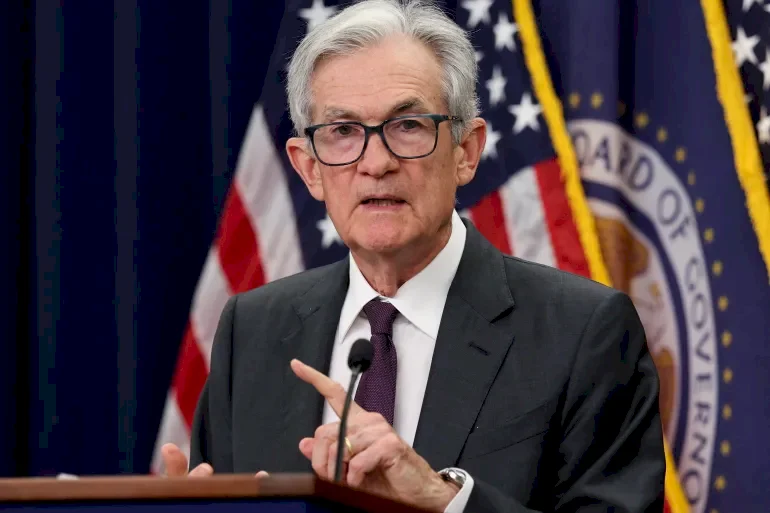
Transformations in Federal Policy from Jackson Hole to the End of Inflation Surpassing
SadaNews - The annual economic policy seminar of the Federal Reserve Bank in Kansas City concludes its events in "Jackson Hole," Wyoming. Here are the key conclusions:
Powell's Signal
Federal Reserve Chairman Jerome Powell indicated in his speech on Friday that the U.S. central bank is likely to cut interest rates in September, after maintaining the benchmark interest rate unchanged throughout the first eight months of the year.
Powell noted a "shift in the risk balance" that may call for a monetary policy adjustment, pointing to weak employment data released following the last monetary policy meeting.
However, he also emphasized the ongoing risks of high inflation resulting from tariffs imposed by President Donald Trump, setting the stage for a heated discussion when monetary policy officials meet in Washington on September 16 and 17 regarding the appropriate pace of rate cuts and whether to proceed with cuts at all.
A New Monetary Policy Framework
Powell also used his speech to announce changes to the overarching monetary policy strategy, marking the conclusion of the formal review that began late last year.
Federal Reserve officials decided to reverse the adjustments made in the previous review in 2020, reflecting the difference in challenges they faced in the past five years compared to those prior to the pandemic.
Key Conclusions from the Fed Chair’s Speech at Jackson Hole
In particular, they abandoned the "compensatory strategy" approved in 2020, which allowed inflation to exceed the 2% target for a certain period after periods of falling below the goal.
Officials also reworded the full employment target, no longer focusing on "shortfalls" in reaching the target, a change from 2020 that meant moving away from decades of "preemptive tightening."
Political Pressures
Over the weekend, the White House continued its attacks on Federal Reserve Board member Lisa Cook, which was directly confronted by one of Trump's allies, James Fishback, in the lobby before being removed by security personnel.
Trump stated on Friday that he would fire Cook if she did not resign from her position amid allegations of mortgage fraud. This came after a statement she released on Wednesday in which she confirmed that she would not allow herself to be intimidated into stepping down.
This recent dispute with Cook is part of a series of pressures exerted by the White House on the Federal Reserve this year in an attempt to push it towards lowering rates. It also heightens the sensitivity of the situation as Trump approaches a decision regarding Powell’s successor when his term ends next May.
A Global Session
During a session held on Saturday, featuring three central bank governors, the governors of the Bank of England and the Bank of Japan avoided discussing monetary policy prospects but addressed the challenges related to labor force expansion in their countries.
In Japan, where declining and aging population pressures are affecting the labor market and raising inflation, Governor Kazuo Ueda stated that integrating more women into full-time jobs and hiring more foreign workers could help address this issue.
Meanwhile, Bank of England Governor Andrew Bailey mentioned that a combination of weak productivity and declining labor market participation has left the UK facing a "sharp challenge to increase potential growth rates". He added: "It’s a very sad story for Britain".
In contrast, European Central Bank President Christine Lagarde delivered a more optimistic message, stating that the European labor market has proved unexpectedly resilient in the face of an inflation shock that occurs "once every 100 years" and the large increases in interest rates.
She added: "Inflation has decreased sharply, and at a remarkably low cost to employment".

Saudi National Bank's Profits Grow 18% in 2025 Surpassing Expectations Thanks to Operation...

Iranian Currency Plummets to Record Low Against the Dollar

India and the European Union Sign a 'Historic' Free Trade Agreement

Oil Prices Drop as Market Shifts Focus to Supply Surplus Forecasts

Gold Holds at $5,000 an Ounce for the Second Day

The Dollar Takes Repeated Hits and Potential Intervention May Lower Its Value

Oil Stabilizes Amid Return of Kazakhstan Exports and Rising Risks from Iran
